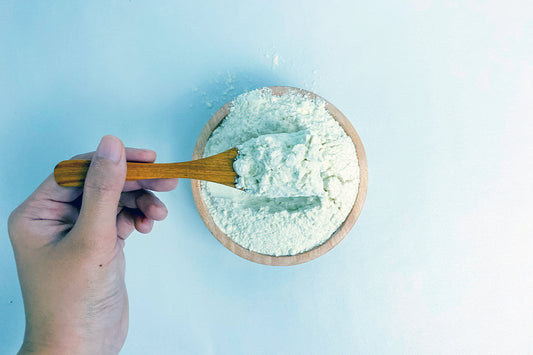6 Superfoods That Help Digestion
Maintaining a healthy digestive system is essential for overall health and well-being. The foods we eat play a crucial role in supporting digestion and ensuring our digestive tract functions optimally. Superfoods, in particular, can help enhance digestive health due to their rich nutrient profiles and unique properties. In this blog, we will explore six superfoods that help maintain healthy digestion, highlighting their benefits and how they can be incorporated into your diet.
1. Fermented Foods
Fermented foods are a powerhouse for digestive health. These foods undergo a process called fermentation, where natural bacteria feed on the sugar and starch in the food, creating beneficial bacteria known as probiotics. Probiotics are essential for maintaining a healthy gut microbiota, which is the community of microorganisms living in our digestive tract.
Examples of Fermented Foods:
- Yogurt: A great source of beneficial bacteria that helps enhance gut health.
- Sauerkraut: Made from fermented cabbage, rich in probiotics and vitamins.
- Kimchi: A traditional Korean dish made from fermented vegetables, known for its health benefits.
- Kefir: A fermented milk drink packed with probiotics and nutrients.
- Incorporating fermented foods into your diet can support gut health by restoring the balance of beneficial bacteria in your digestive system.
2. Leafy Greens
Leafy greens are a fantastic addition to a diet focused on digestive health. These plant-based foods are rich in fiber, vitamins, and minerals, making them an excellent choice for supporting overall health. The fiber in leafy greens helps maintain healthy digestion by supporting regular bowel movements and easing constipation.
Examples of Leafy Greens:
- Spinach: A great source of soluble and insoluble fiber, aiding in digestion.
- Kale: Rich in vitamins A, C, and K, and packed with fiber.
- Swiss Chard: Contains a variety of nutrients and fiber to support digestive health.
- Leafy greens also contain prebiotic fibers that feed the beneficial bacteria in the gut, helping maintain a healthy gut microbiota.
3. Fruits and Vegetables
Fruits and vegetables are essential for a healthy digestive system. They provide a wide range of nutrients, including vitamins, minerals, and fiber, which are crucial for digestive health. The fiber found in fruits and vegetables comes in two forms: soluble and insoluble. Both types are important for maintaining healthy digestion.
Examples of Fiber-Rich Fruits and Vegetables:
- Apples: Contain soluble fiber called pectin, which helps maintain healthy digestion.
- Bananas: A great source of both soluble and insoluble fiber, supporting gut health.
- Carrots: Rich in insoluble fiber, which helps maintain regular bowel movements.
- Berries: Packed with fiber and antioxidants, supporting overall health.
- Including a variety of fruits and vegetables in your diet can help maintain a healthy digestive tract and support overall health.
4. Omega-3 Fatty Acids
Omega-3 fatty acids are known for their anti-inflammatory properties and their ability to support heart health. However, they also play a significant role in digestive health. Omega-3s can help enhance the function of the digestive system by maintaining healthy inflammation and supporting the health of the gut lining.
Sources of Omega-3 Fatty Acids:
- Fatty Fish: Salmon, mackerel, and sardines are rich sources of omega-3s.
- Chia Seeds: Packed with omega-3s and fiber, making them a great addition to any diet.
- Flaxseeds: Another plant-based source of omega-3s and fiber.
- Adding omega-3 fatty acids to your diet can help maintain a healthy digestive system and support overall health.
5. Whole Grains
Whole grains are an excellent source of fiber, which is essential for healthy digestion. They contain both soluble and insoluble fiber, helping maintain regular bowel movements and supporting gut health. Whole grains also provide a range of nutrients that contribute to overall health.
Examples of Whole Grains:
- Oats: A great source of soluble fiber called beta-glucan, which supports digestive health.
- Quinoa: A nutrient-dense grain that provides fiber, protein, and essential vitamins.
- Brown Rice: Contains insoluble fiber, promoting regular bowel movements.
- Incorporating whole grains into your diet can help maintain healthy digestion and support overall health.
6. Nuts and Seeds
Nuts and seeds are packed with nutrients, including fiber, healthy fats, and proteins. They are a great source of both soluble and insoluble fiber, which can help maintain a healthy digestive system. Additionally, nuts and seeds provide prebiotic fibers that feed the beneficial bacteria in the gut.
Examples of Nuts and Seeds:
- Almonds: High in fiber, healthy fats, and vitamins, supporting digestive health.
- Chia Seeds: Rich in fiber and omega-3 fatty acids, making them a powerful superfood.
- Walnuts: Provide omega-3s and fiber, helping maintain a healthy digestive tract.
Including a variety of nuts and seeds in your diet can help enhance digestion and support overall health.
Conclusion
Maintaining a healthy digestive system is essential for overall health, and incorporating superfoods into your diet can help enhance digestive health. Fermented foods, leafy greens, fruits and vegetables, omega-3 fatty acids, whole grains, and nuts and seeds are all excellent choices for supporting healthy digestion. By including these superfoods in your diet, you can help maintain a healthy digestive tract, support gut health, and enjoy the many health benefits they offer.






